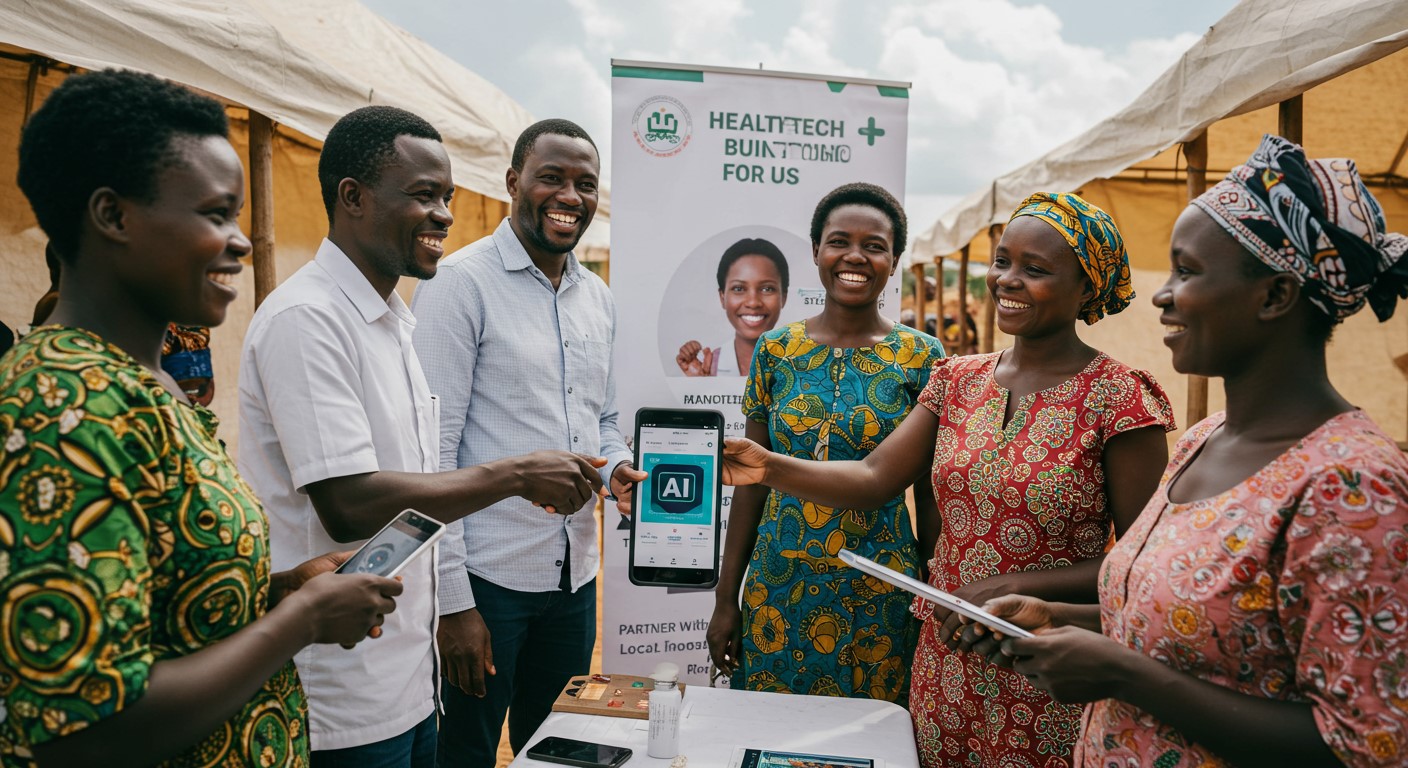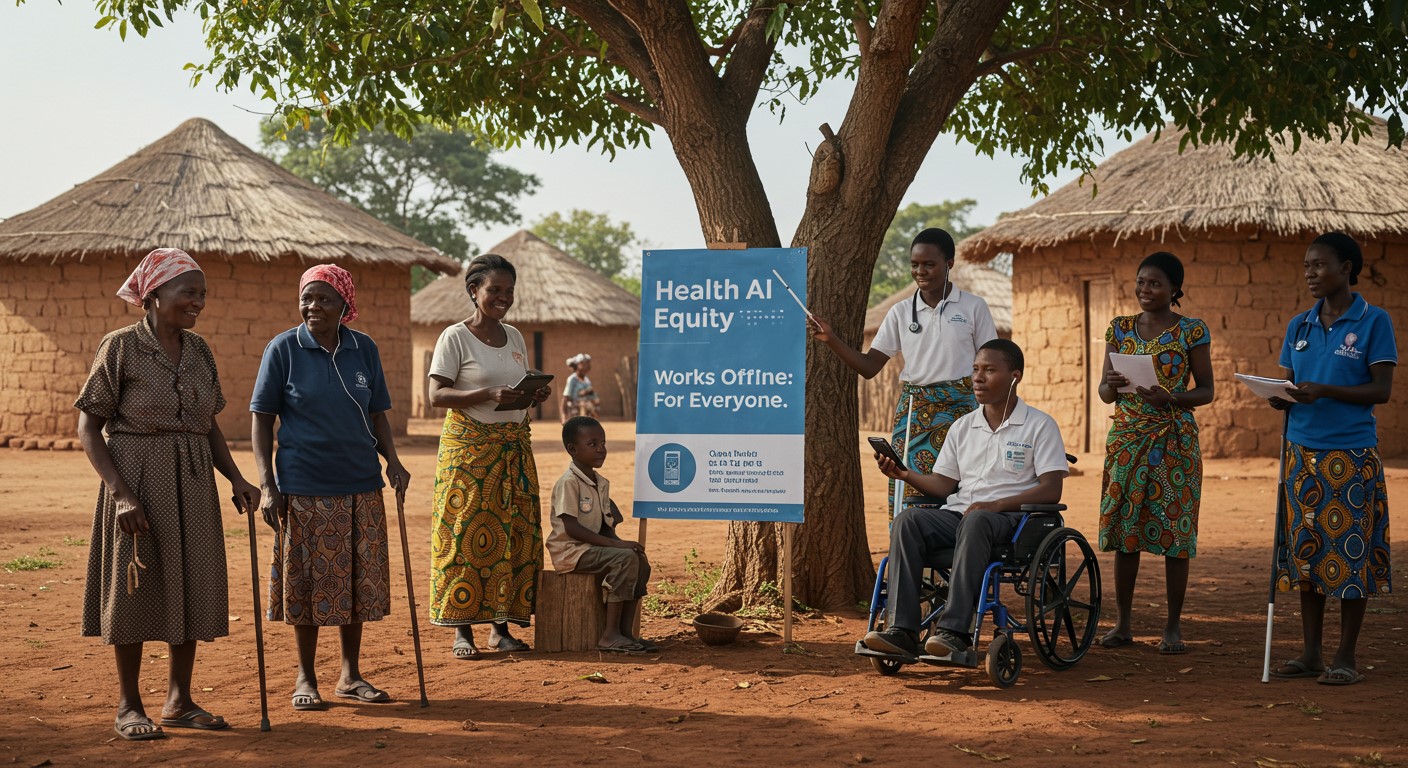How easier life would be if you could detect early signs of a disease, diagnose it faster than a doctor, and get direction on what treatment to access, all without stepping into a hospital.

If you have ever been through the hassles of getting treated at a General hospital in Nigeria, you would definitely embrace a technology like this.

And no, this is not science fiction, it is the future AI is building for Africa and the world at large. But like any disruptive technology, AI brings both massive opportunities to save lives faster and smarter yet comes with its own risk.
In this post, we explore how artificial intelligence (AI) is already changing healthcare across the continent, the pros and cons of this revolution, and most importantly, what African governments, health innovators, and citizens should do.
How AI is Disrupting Healthcare in Africa
AI in African healthcare is already happening. From AI-powered diagnostic tools to chatbot doctors and smart triage systems in Nigeria, this technology is redefining care delivery in places with limited access.
According to the World Economic Forum, Africa faces a shortfall of 6 million healthcare workers by 2030. AI is stepping in to bridge this gap, offering solutions like: Automated diagnostics, Remote monitoring, Personalized treatment plans and Health data analysis
Considering the Pros: Benefits of AI in African Healthcare
1. Bridging the Doctor Shortage
AI tools can serve as clinical assistants, helping nurses and community health workers make better decisions, especially in rural areas where doctors are scarce.

2. Early and Accurate Diagnosis
AI can detect diseases like malaria, TB, and cancer with high accuracy using image recognition, even via basic mobile devices.

3. Cost-Effective Healthcare
Automation reduces the need for expensive hospital visits, making healthcare more affordable and accessible for low-income families.

4. Better Disease Surveillance
AI algorithms can track outbreaks, helping governments respond faster to epidemics like Ebola or COVID-19.

5. Language and Accessibility
AI-powered chatbots and voice assistants can deliver care instructions in local languages, improving health literacy.

Considering the Cons: Challenges and Risks
1. Data Privacy Concerns
Many African countries lack strong data protection laws, exposing sensitive health information to misuse or leaks.
2. Bias in Algorithms
AI is only as good as its training data. If models are trained on non-African data, they can make flawed predictions that don’t account for the realities of the locals.
3. Widening Inequality
Urban centers may benefit more from AI, while rural and low-tech areas get left behind, creating a new digital health divide.
4. Dependence on Foreign Tech
If Africa only imports AI tools without developing local expertise, it risks digital colonization in the health sector.
5. Job Displacement
As machines take over repetitive tasks, there’s a growing fear of healthcare workers losing jobs, unless they upskill.

What Africa Must Do: The Way Forward
1. Build Local AI Talent
Invest in AI education and training programs for data scientists, developers, and health professionals across the continent.

2. Strengthen Regulations
Develop robust policies around AI ethics, data privacy, and accountability to prevent harm and ensure fairness.

3. Invest in Infrastructure
AI needs data, electricity, and connectivity. Governments and private partners must invest in the digital backbone that supports AI.

4. Partner with Local Innovators
Support African health tech startups and researchers who understand cultural contexts and real community needs.

5. Prioritize Equity
Design AI solutions that work offline, function on basic phones, and are accessible to disabled, elderly, and rural populations.

All things considered.
AI holds the power to revolutionize healthcare in Africa, not just by solving old problems, but by reimagining care for future generations. But this power must be used wisely, with clear eyes on both the promise and the peril.
If Africa gets it right, AI won’t just disrupt healthcare, it will transform it into a system that’s more inclusive, resilient, and people-centered.

